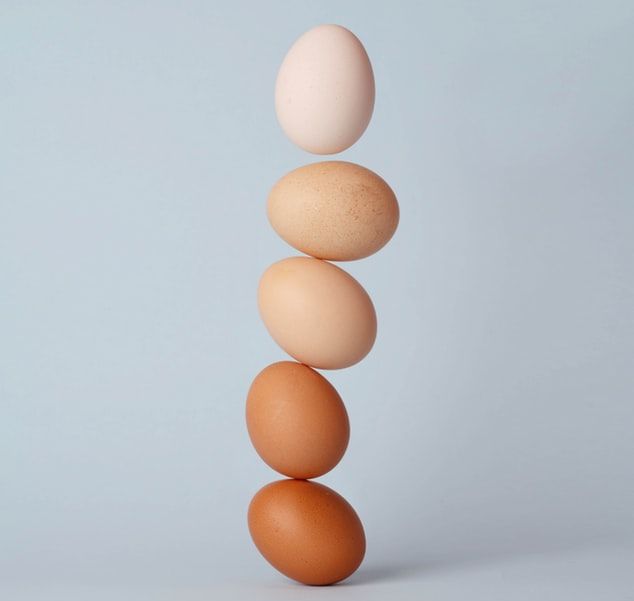Choline

Choline is theorized to be as important as folic acid during pregnancy but is very rarely recommended by health care providers (HCP).
Choline has potential positive effects on neural tube development and overall neurological development, and researchers are concerned that pregnant women do not obtain enough of the nutrient (less than 10% of the recommended 450 milligrams (mg)/day).
Based on the limited amount of choline that pregnant women ingest, and the lack of choline in prenatal vitamins, research regarding supplementation is ongoing.
Until more research is conducted, it is currently recommended that women attempt to obtain 450 mg/day. Extra choline can be obtained through small additions or changes to the diet (eggs, meat, and some vegetables).
Women should talk to their HCP before taking any supplements during pregnancy.
Background
Choline is similar to B vitamins (such as folate) but is neither a vitamin nor mineral; it is, however, an essential nutrient, as the body does not make enough choline on its own to support daily functions.
Liver and muscle cells die without choline; it is also necessary for cell membrane construction and the formation of neurotransmitters.
On December 29, 2020, the U.S. Department of Agriculture released its 2020-2025 Dietary Guidelines for Americans. For the first time, these guidelines included specific recommendations during pregnancy and lactation. Of all nutrients, the report singled out four seen as especially important in pregnancy/postpartum: folic acid, iodine, iron, and choline.
Pregnancy
Research illustrates the importance and higher requirements of choline during pregnancy, but it is one of the least recommended nutrients by obstetricians.
The need for choline during pregnancy is high, and even breastmilk contains high amounts of it.
During very early fetal development, cells multiply rapidly, become different types of cells, and migrate to various locations to grow organs, bone, skin, and blood vessels. Some of these cells also purposefully die (i.e. to create fingers and toes), and choline is critical for this to occur correctly.

Choline is also vital for normal brain circuit development and may improve placental health and nutrient delivery to the fetus.
The placenta and amniotic fluid store very large amounts of choline to ensure that enough choline is delivered to the fetus, which could deplete the mother’s choline status; choline concentrations are up to 7 to 14 times higher in fetuses and newborns than in adults.
Although animal and human studies (non-pregnant adults) have associated high choline intake with better cognitive function, this has not been studied during pregnancy to determine if the infant/child could benefit from maternal supplementation. However, potential impact on the fetal brain is becoming more evident.
Clinical trials are underway to determine if choline supplementation during pregnancy can lessen the effects of alcohol exposure on a fetus/infant, which is known to damage the fetal brain. At least one study published in July 2021 indicated that choline may be neuroprotective against prenatal alcohol exposure-related brain structural deficits.
Further, an additional new aspect of choline research during pregnancy involves choline’s impact on the prevention of schizophrenia and other mental illnesses for the child and into adulthood. However, since the onset of most mental illness does not become apparent until young adulthood, evidence may not be available for decades.
However, a study published in July 2021 studied this aspect of choline specifically in Black pregnant women. Inhibitory and behavioral deficits in the children of Black American women may be associated with lower prenatal choline intake. These effects could be lessened by prenatal choline or phosphatidylcholine supplementation. Phosphatidylcholine increased gestational age at birth and newborn P50 inhibition (response to redundant stimuli; can help test for schizophrenia) and decreased Social Withdrawn and Attention problems at 40 months of age.
The biggest possible impact on the fetal brain is likely choline's assessed potential against the prevention of neural tube defects (NTD).
Choline is needed for normal neural tube closure in early pregnancy for rodents.
Although animal studies do not always extrapolate to humans, it is currently assessed that a lack of choline could negatively alter brain and spinal cord development, increasing the risk for NTDs, memory problems, and even orofacial clefts.
One study identified women with low choline consumption had approximately four times the risk of having a baby with an NTD than women with high choline consumption.
However, when studied directly, it did not appear that the addition of choline to folic acid supplements further reduced NTD risk, but further research is ongoing.
Regardless, due to supplemental choline’s potential impact, some researchers believe there may be actual risk in waiting for further research before recommending supplemental choline the same way as folic acid.
To date, there are no formal recommendations from obstetric organizations recommending supplemental choline.
Deficiency
Interestingly, however, the pregnant body may protect itself from choline deficiency through estrogen:
In one study, when men and postmenopausal women were fed a diet with low choline for seven weeks, most developed liver and muscle damage – a well-known effect (as mentioned in Background section). However, significantly less pre-menopausal women had these effects.
It is possible that younger women are designed to have the extra capacity to make choline, with the biggest capacity during pregnancy (based on estrogen levels). This mechanism would also ensure then, that young women have enough choline in the event they become pregnant.

Supplementation
It is currently recommended pregnant women obtain 450 mg/day of choline.
It is estimated that only about 9% of pregnant women meet daily choline recommendations, and as of 2017, none of the top 25 prenatal multivitamins contained the recommended 450 mg dose. However, it is estimated that most of this requirement can be obtained through more targeted food choices.
In June 2017, the American Medical Association (AMA) took up a resolution to support evidence-based amounts of choline in all prenatal vitamins.
Although no negative affects were reported in at least one study that assessed the safety of adding 750 mg/day of choline in the diet of pregnant women, large amounts of supplemental choline do have side effects such as vomiting, sweating, diarrhea, and low blood pressure; a tolerable upper limit has been set at 3,500 mg/day.
Although choline supplementation could have potential benefits in pregnancy, to date, staying within the suggested range of 450 mg/day through diet is the best recommendation. Additional supplementation may be necessary for those with low choline diets or deficiency concerns.
Food Sources
Choline is naturally found in egg yolks, salmon and other fish, meat, poultry, milk and dairy foods, and soybeans.

In general, choline consumption in the United States started to drop in the 1970s when cholesterol (and eggs) became "the thing" to avoid. (Note: concerning amounts of cholesterol in eggs has been disproven.)
Egg yolks are the most concentrated source of choline in the American diet, providing 680 mg per 100 grams.
Eating one egg (or one extra egg) a day would increase the number of pregnant women meeting the requirement from 10% to more than 50%.
Vegans and vegetarians can obtain choline through cauliflower, soymilk, wheat germ, peanuts and many types of beans.
Action
Women who are concerned about their choline status during pregnancy should speak with their HCP. Women should also consider having a discussion with their HCP regarding their overall diet, so HCPs can point out any possible nutrient(s) that women could be missing.
Pregnant women should never take any supplements, including over-the-counter, without first talking to their HCP.
Resources
Choline (U.S National Institutes of Health, Office of Dietary Supplements)
Choline (Oregon State University, Micronutrient Information Center)
Choline: The Underconsumed and Underappreciated Essential Nutrient (Nutrition Today; Wallace, Taylor C et al. Nov/Dec 2018)